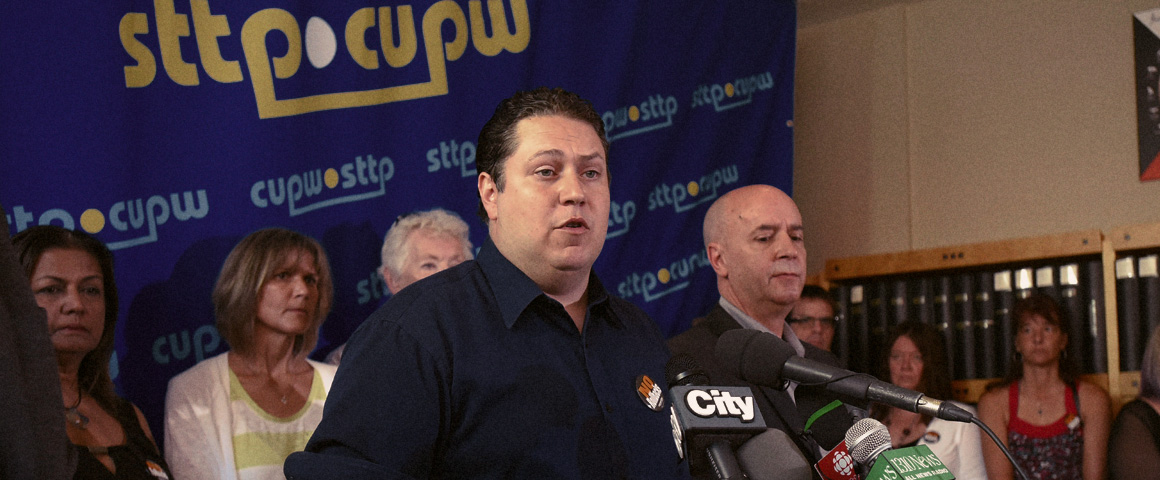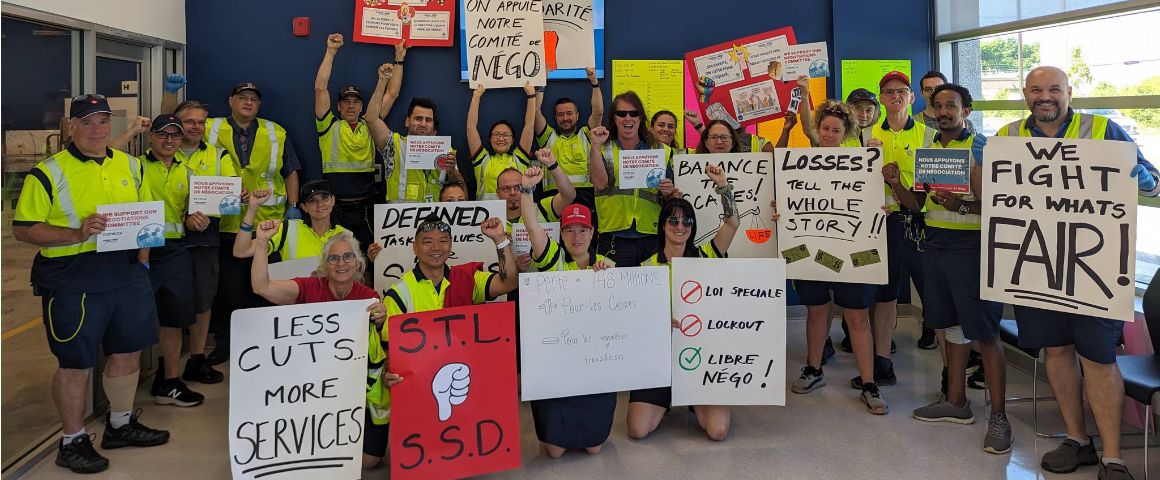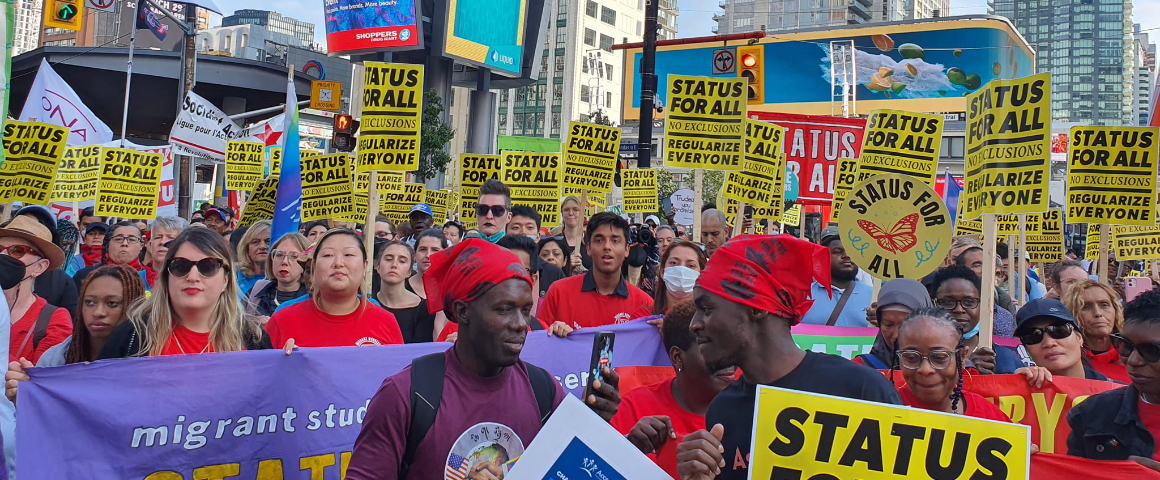As negotiations between Canada Post and the Canadian Union of Postal Workers (CUPW) drag into the eleventh hour, according to the union, management remains completely intransigent. “We are still far apart,” said Mike Palecek, National President of the CUPW told People’s Voice. “While we hope for progress we haven’t seen much and the deadline is fast approaching,” he said.
People’s Voice reached Palecek on his lunch break between negotiations in late August. At issue are jobs, wages, pensions, pay equity and the broader question of the future public post office as well as one of Canada’s most progressive unions.
“Our goal is to negotiate,” Palecek said, but noted that Canada Post needed to come up with proposals to address issues including “fundamental injustices that are decades-old” in the case of pay equity for Rural and Suburban Mail Carriers. “We need some movement.”
Negotiations have been underway for over nine months, beginning in November 2015 and intensifying in April 2016. In July, the union obtained a strike mandate from its membership until August 25, but decided not to use this pressure tactic immediately.
“Canada Post is demanding cuts and concessions including the closure of some 500 post offices,” said Palecek. “Shutting down the post office has been rejected by CUPW and rejected by the public,” he added, noting that the Trudeau Liberals won a mandate based on stopping the job losses and closures associated with shutting down urban home mail delivery.
“It seems like the Tories are still running the post office,” Palecek said. “We need to bring this Crown Corporation in line with the government. The government is taking about improving pensions, while Canada Post is going in the other direction. We have to say to Prime Minister Trudeau, do you actually believe in it, [this agenda you talk about]. Put your money where your mouth is.”
Palecek also explained that the dispute regarding Rural and Suburban Mail Carriers was “a classic, clear, text-book pay equity case, meeting all the definitions under the legislation.” The rural mail carriers unit only recently joined the union in 2004. Prior to that the carriers were contractors and, according to Palecek, seventy percent or more of the workforce were women.
“This is a group of undervalued women who are doing the same work, for 28 percent less pay,” said Palecek. Many of the workers were rural women who also worked of family farms, picking up part time work to bring in some extra money. But because they were wives and mothers and not “so-called primary bread winners,” he said, the post office has paid them less than urban mail carriers for decades.
Palecek was very positive about the community support that CUPW is receiving. One example is the cross-Canada day of action called by the People for Posties solidarity group, which will take place on September 17th.
He appealed to the public to continue to loudly respond and participate in the upcoming federal government review about the future of the post office. “Let your Member of Parliament know the value of the public post office, pay equity and pensions,” he said. Information on the hearings will be available on the union’s website, cupw.ca, and announcements about the rallies can be found via Facebook and at people4posties.ca.
Despite the misinformation campaign by Canada Post’s CEO Deepak Chopra and others who claim Canada Post is past its prime, Palecek said the union is confident in the future potential of the public post office. He noted that CUPW had recently made a proposal to “green the post office” so that the crown corporation took a leading role in building a more sustainable and less polluting economy.
According to CUPW, there are almost twice as many post offices across Canada as Tim Hortons coffee shops, making the post office the biggest retail network in the country. The campaign, called “Delivering Community Power,” has three main components, which will take advantage of this vast logistical network.
“We are proposing a renewable-powered electric postal fleet, charging stations for electric vehicles at post offices, and postal banking which can fund small projects like installing solar panels on your home, through micro-loans,” he said. “In France, their postal bank funds social housing. These are proven models seen around the world. What is lacking is the political will. We’ve got to get serious about climate change. Meeting the government’s commitments on climate change will require massive commitment,” in terms of social-economic changes.
The campaign draws from ideas raised by Naomi Klein in the “Leap Manifesto” but goes much further, putting the question of public ownership as the springboard for the leap. “Capitalism and the free market can’t solve climate change,” he said.
Palecek pointed to the experience of Canada during the Second World War. “We can debate the war, but before [World War II] Canada was a minimal arms producer.” After the war began, he said, Canada saw the drafting of masses of women into workforce, and a large percent of the male population mobilized as soldiers. “We need a similar level of response to deal with climate change,” he said.
The campaign is calling for the post office to help deliver a one-hundred percent renewable economy, to address inequality, put power in public hands, and improve people’s lives. More information is at DeliveringCommunityPower.ca.




